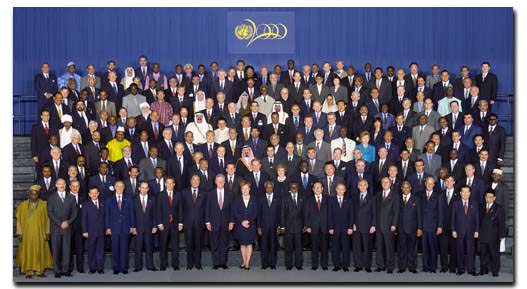Mike Myatt, Contributor
I write about leadership myths, and bust them one-by–one.
Mike Myatt
I don’t believe it comes as any great surprise that most leaders spend the overwhelming majority of their time each day in some type of an interpersonal situation. I also don’t believe it comes as a great shock to find a large number of organizational problems occurs as a result of poor communications. It is precisely this paradox that underscores the need for leaders to focus on becoming great communicators. Effective communication is an essential component of professional success whether it is at the interpersonal, intergroup, intragroup, organizational, or external level. While developing an understanding of great communication skills is easier than one might think, being able to appropriately draw upon said skills when the chips are down is not always as easy as one might hope for.
Skills acquired and/or knowledge gained is only valuable to the extent they can be practically applied when called for. It has been my experience that the number one thing great communicators have in common is that they possess a heightened sense of situational and contextual awareness. The best communicators are great listeners and observers. Great communicators are skilled a reading a person/group by sensing the moods, dynamics, attitudes, values and concerns of those being communicated with. Not only do they read they environment well, but they possess the uncanny ability to adapt their messaging to said environment without missing a beat. The message is not about the messenger; it has nothing to do with messenger; it is however 100% about meeting the needs and the expectations of those you’re communicating with.
So how do you know when your skills have matured to the point that you’ve become an excellent communicator? The answer is you’ll have reached the point where your interactions with others consistently use the following ten principles:
World Leaders
2. Get personal: There is great truth in the axiom that states: “people don’t care how much you know until they know how much you care.” Classic business theory tells leaders to stay at arms length. I say stay at arms length if you want to remain in the dark receiving only highly sanitized versions of the truth. If you don’t develop meaningful relationships with people you’ll never know what’s really on their mind until it’s too late to do anything about it.
3. Get specific: Specificity is better than Ambiguity 11 times out of 10: Learn to communicate with clarity. Simple and concise is always better than complicated and confusing. Time has never been a more precious commodity than it is in today’s marketplace. It is critical you know how to cut to the chase and hit the high points, and that you expect the same from others. Without understanding the value of brevity and clarity it is unlikely that you’ll ever be afforded the opportunity to get to the granular level as people will tune you out long before you ever get there. Your goal is to weed out the superfluous and to make your words count.
4. Focus on the leave-behinds not the take-aways: The best communicators develop the ability to get the information they need while leaving the other party feeling as if they got more out of the conversation than you did. While you can accomplish this by being disingenuous, that is not the goal. When you truly focus more on contributing more than receiving, you will have accomplished the goal. Even though this may seem counter-intuitive, by intensely focusing on the other party’s wants, needs and desires, you’ll learn far more than you ever would by focusing on your agenda.
5. Have an open mind: I’ve often said that the rigidity of a closed mind is the single greatest limiting factor of new opportunities. A leader takes their game to a whole new level the minute they willingly seek out those who hold dissenting opinions and opposing positions with the goal not of convincing them to change their minds, but with the goal of understanding what’s on their mind. I’m always amazed at how many people are truly fearful of opposing views, when what they should be is genuinely curious and interested. Open dialogs with those who confront you, challenge you, stretch you, and develop you. Remember that it’s not the opinion that matters, but rather the willingness to discuss it with an open mind and learn.
6. Shut-up and listen: Great leaders know when to dial it up, dial it down, and dial it off (mostly down and off). Simply broadcasting your message ad nauseum will not have the same result as engaging in meaningful conversation, but this assumes that you understand that the greatest form of discourse takes place within a conversation, and not a lecture or a monologue. When you reach that point in your life where the light bulb goes off, and you begin to understand that knowledge is not gained by flapping your lips, but by removing your ear wax, you have taken the first step to becoming a skilled communicator.
7. Replace ego with empathy: I have long advised leaders not to let their ego write checks that their talent can’t cash. When candour is communicated with empathy & caring and not the prideful arrogance of an over inflated ego good things begin to happen. Empathetic communicators display a level of authenticity and transparency that is not present with those who choose to communicate behind the carefully crafted facade propped-up by a very fragile ego. Understanding the communication principle is what helps turn anger into respect and doubt into trust.
 8. Read between the lines: Take a moment and reflect back on any great leader that comes to mind… you’ll find they are very adept at reading between the lines. They have the uncanny ability to understand what is not said, witnessed, or heard. Being a leader should not be viewed as a license to increase the volume of rhetoric. Rather astute leaders know that there is far more to be gained by surrendering the floor than by filibustering. In this age of instant communication, everyone seems to be in such a rush to communicate what’s on their mind that they fail to realize everything to be gained from the minds of others. Keep your eyes & ears open and your mouth shut and you’ll be amazed at how your level or organizational awareness is raised.
8. Read between the lines: Take a moment and reflect back on any great leader that comes to mind… you’ll find they are very adept at reading between the lines. They have the uncanny ability to understand what is not said, witnessed, or heard. Being a leader should not be viewed as a license to increase the volume of rhetoric. Rather astute leaders know that there is far more to be gained by surrendering the floor than by filibustering. In this age of instant communication, everyone seems to be in such a rush to communicate what’s on their mind that they fail to realize everything to be gained from the minds of others. Keep your eyes & ears open and your mouth shut and you’ll be amazed at how your level or organizational awareness is raised.
9. When you speak, know what you’re talking about: Develop a technical command over your subject matter. If you don’t possess subject matter expertise, few people will give you the time of day. Most successful people have little interest in listening to those individuals who cannot add value to a situation or topic, but force themselves into a conversation just to hear themselves speak. The fake it until you make it days have long sense passed, and for most people I know fast and slick equals not credible. You’ve all heard the saying “it’s not what you say, but how you say it that matters,” and while there is surely an element of truth in that statement, I’m here to tell you that it matters very much what you say. Good communicators address both the “what” and “how” aspects of messaging so they don’t fall prey to becoming the smooth talker who leaves people with the impression of form over substance.
10. Speak to groups as individuals: Leaders don’t always have the luxury of speaking to individuals in an intimate setting. Great communicators can tailor a message such that they can speak to 10 people in a conference room or 10,000 people in an auditorium and have them feel as if they were speaking directly to each one of them as an individual. Knowing how to work a room and establish credibility, trust, and rapport are keys to successful interactions.
11. Bonus – Be prepared to change the message if needed: Another component of communications strategy that is rarely discussed is how to prevent a message from going bad, and what to do when does. It’s called being prepared and developing a contingency plan. Again, you must keep in mind that for successful interactions to occur, your objective must be in alignment with those you are communicating with. If your expertise, empathy, clarity, etc. don’t have the desired effect, which by the way is very rare, you need to be able to make an impact by changing things up on the fly. Use great questions, humour, stories, analogies, relevant data, and where needed, bold statements to help connect and engender the confidence and trust that it takes for people to want to engage. While it is sometimes necessary to “Shock and Awe” this tactic should be reserved as a last resort.
Don’t assume someone is ready to have a particular conversation with you just because you’re ready to have the conversation with them. Spending time paving the way for a productive conversation is far better than coming off as the proverbial bull in a china shop. Furthermore, you cannot assume anyone knows where you’re coming from if you don’t tell them. I never ceased to be amazed at how many people assume everyone knows what they want to occur without ever finding it necessary to communicate their objective. If you fail to justify your message with knowledge, business logic, reason, empathy etc., you will find that said message will likely fall on deaf ears needing reinforcement or clarification afterward.
Bottom line – The leadership lesson here is whenever you have a message to communicate (either directly, or indirectly through a third party) make sure said message is true & correct, well reasoned, and substantiated by solid business logic that is specific, consistent, clear and accurate. Spending a little extra time on the front-end of the messaging curve will likely save you from considerable aggravation and brain damage on the back-end. Most importantly of all, keep in mind that communication is not about you, your opinions, your positions or your circumstances. It’s about helping others by meeting their needs, understanding their concerns, and adding value to their world. Do these things and you’ll drastically reduce the number of communications problems you’ll experience moving forward.
Your Thoughts Please!
Follow me on Twitter @MikeMyatt






































